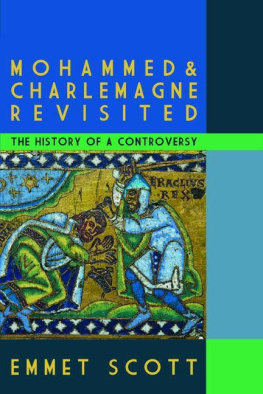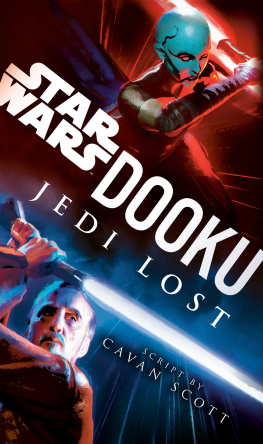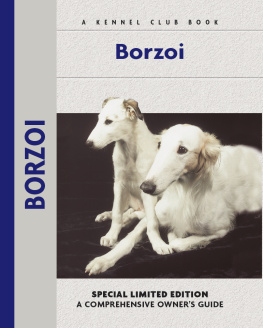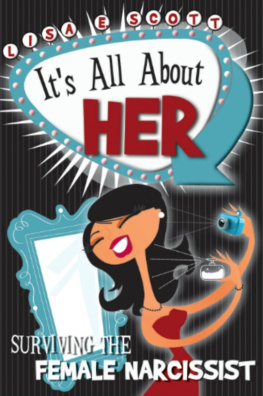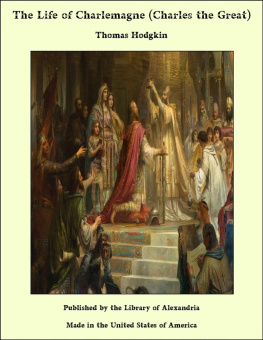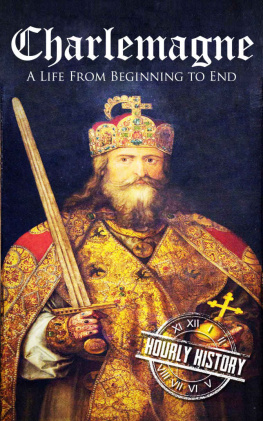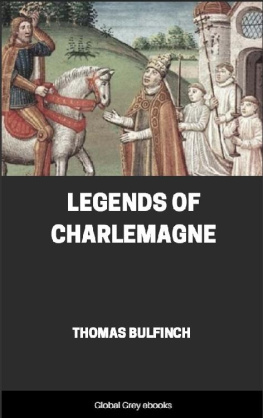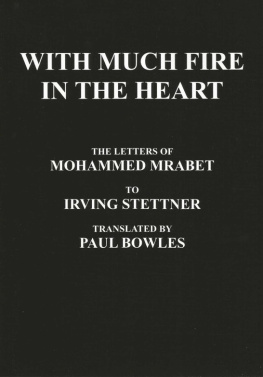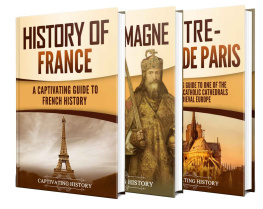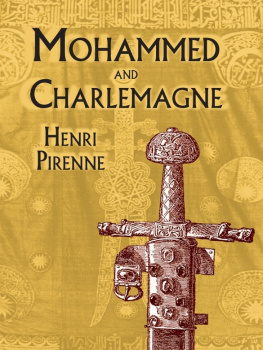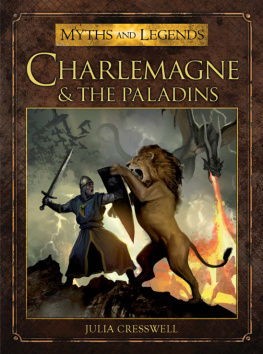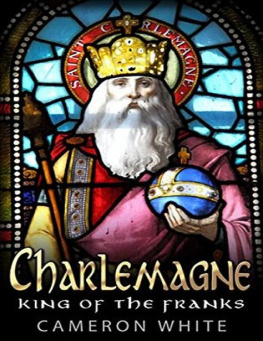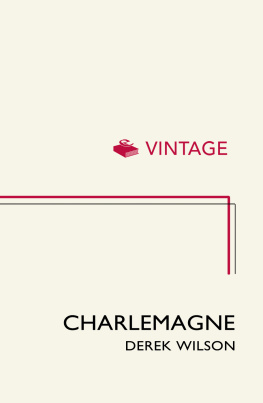Scott - Mohammed & Charlemagne Revisited: The History of a Controversy
Here you can read online Scott - Mohammed & Charlemagne Revisited: The History of a Controversy full text of the book (entire story) in english for free. Download pdf and epub, get meaning, cover and reviews about this ebook. year: 2011, publisher: New English Review Press, genre: History. Description of the work, (preface) as well as reviews are available. Best literature library LitArk.com created for fans of good reading and offers a wide selection of genres:
Romance novel
Science fiction
Adventure
Detective
Science
History
Home and family
Prose
Art
Politics
Computer
Non-fiction
Religion
Business
Children
Humor
Choose a favorite category and find really read worthwhile books. Enjoy immersion in the world of imagination, feel the emotions of the characters or learn something new for yourself, make an fascinating discovery.
Mohammed & Charlemagne Revisited: The History of a Controversy: summary, description and annotation
We offer to read an annotation, description, summary or preface (depends on what the author of the book "Mohammed & Charlemagne Revisited: The History of a Controversy" wrote himself). If you haven't found the necessary information about the book — write in the comments, we will try to find it.
Mohammed & Charlemagne Revisited: The History of a Controversy — read online for free the complete book (whole text) full work
Below is the text of the book, divided by pages. System saving the place of the last page read, allows you to conveniently read the book "Mohammed & Charlemagne Revisited: The History of a Controversy" online for free, without having to search again every time where you left off. Put a bookmark, and you can go to the page where you finished reading at any time.
Font size:
Interval:
Bookmark:
The History of a Controversy
By Emmet Scott
Copyright Emmet Scott, 2012
All rights reserved. No part of this book may be reproduced in any form or by any means, electronic or mechanical, without permission in writing from the publisher except by reviewers who may quote brief passages in their reviews.
Published by New English Review Press
a subsidiary of World Encounter Institute
PO Box 158397
Nashville, Tennessee 37215
Printed in the United States of America
Cover Design by Kendra Adams
Sassanid King Khosrau II submits to Byzantine Emperor Heraclius
from a plaque on a 12th century French cross
ISBN 978-0-578-09418-2
First Edition
 NEW ENGLISH REVIEW PRESS
NEW ENGLISH REVIEW PRESS
newenglishreview.org
T he book that follows is not a history in the normal sense, but, as the subtitle explains, the history of a controversy. The controversy in question is the one which has raged for many years around the question: What ended Roman civilization and brought about the Dark Ages?
Theories about the fall of the Roman Empire as a political institution have of course been thick on the ground for centuries; but the present study is not so much concerned with this event as with the fall of the civilization associated with the Roman Empire. That civilization more properly called classical civilization survived the fall of the Empire and was not, in any case, a creation of the Romans at all, but of the Greeks, which the Romans imbibed wholesale, and which they proceeded, with their conquests, to spread throughout the western Mediterranean and northern Europe. This Graeco-Roman civilization may be described as largely urban, literate, and learned, and characterized by what could be called a rationalist spirit. It was a society which, in theory at least, respected reason and the pursuit of knowledge, and which was not given to religious extremism or fanaticism. We know that this civilization did not come to an end with the fall of the Western Roman Empire. It survived in Constantinople and the Eastern Empire, and it survived too even in the West, a region administered, from 476 onwards, by barbarian kings and princes. The rulers of the Franks, Visigoths and Ostrogoths and even of the Vandals tried hard to preserve the culture and institutions they found in place when they crossed the Imperial frontiers. Yet, in spite of all this, Graeco-Roman civilization did indeed die in the West, and it died too in the East. In both regions it was replaced, eventually, by a society and civilization that we now call medieval, a society whose most outstanding characteristics were in many ways the precise opposite of the classical; a society that was overwhelmingly rural, generally illiterate, had a largely barter economy, and tended to be inward-looking rather than open and syncretic. (The latter of course is a clichd and formulaic view of medieval civilization, but it does contain important elements of the truth).
It is the purpose of the present study to examine the causes of this, or, more precisely, to examine a highly controversial thesis about it which appeared in the early years of the twentieth century. This was the thesis of Henri Pirenne, a Belgian historian whose specialism was the early medieval period. Pirenne maintained that the real destroyers of classical civilization were the Muslims. It was the Arab Invasions, he said, which broke the unity of the Mediterranean world and turned the Middle Sea previously one of the worlds most important trading highways into a battleground. It was only after the appearance of Islam, claimed Pirenne, that the cities of the West, which depended upon the Mediterranean trade for their survival, began to die. With them went the entire infrastructure of classical culture. Pirenne found that from the mid-seventh century onwards a host of luxury products, which had hitherto been common in Gaul, Italy and Spain, disappeared, and that with them went the prosperity upon which classical culture depended. Towns shrank and society became more rural.
Essentially, what Pirenne was saying was that Islam caused the Dark Age in Europe. This was, even in the 1920s, when the thesis was first published, an extremely controversial idea, and went quite against the grain of contemporary opinion: for the tendency over the previous century had increasingly been to see Islam as the harbinger of medieval Europes civilization; as the great preserver of classical knowledge and learning; as an enlightened and tolerant influence which reached Europe in the seventh century and which commenced then to raise the continent out of the darkness into which it had sunk. This had been the default mode of thought amongst perhaps the majority of academics for almost half a century before the appearance of Pirennes thesis, a view of history deeply rooted in contemporary European thinking. And then along came Pirenne to claim the precise opposite!
As might be imagined, such a remarkable counter-thesis generated heated debate; a debate that endures to this day. And to this day, the two camps are divided rather precisely as they were in the time of Pirenne, who died in 1935. There are those who, with varying degrees of passion, maintain that Islam essentially saved the remnants of classical culture and learning, which they transmitted to a benighted Europe; and there are those (a much smaller group) who, with Pirenne, maintain that Islam was the destroyer of that very culture and learning; and that if Europe was benighted after the seventh century, it was benighted precisely because of the actions of the Muslims. How strange is this situation! How is it that one topic can give rise to such radically differing perspectives? We are, we might say, once more in what was known during the Middle Ages as the worlds debate. In those days, during the Crusades, the debate was waged by force of arms. The academic and in some respects ideological battle being fought today is waged in newspapers, books, journals, television, radio and the internet; though another theatre of the debate is arguably being waged precisely as it was in the time of the Crusades: by force of arms.
Why then is this debate still with us; and why does it elicit such radically opposing responses? What is it about Islam and its history that gives rise to such intense controversy? The answer to these questions shall, I hope, be presented in the pages to follow. And if it is not an answer that everyone can accept, then at least the evidence shall be presented in a way that is accessible to all and that may enable the reader to make up his/her own mind.
* * *
As this is the history of a debate, it is appropriate to begin with a look at how it developed over the centuries; for the story does not begin with Pirenne.
Until the eighteenth century scholars had generally assumed that classical civilization came to an end with the dissolution of the Western Roman Empire in 476. However, as the eighteenth century progressed and the study of history became a proper scholarly discipline rather than a simple chronicling of events, educated Europeans became aware of the fact that the barbarian tribes who conquered the Western Empire in the fifth century never intended to destroy Roman society or culture; and as our knowledge of late antiquity improved, the obvious question became progressively more urgent: What then brought classical civilization to an end? If it was not, after all, the barbarians, who were responsible, who or what was, and when?
Concomitant with research into Roman history, Enlightenment scholars began a detailed examination of early medieval Europe. As they did so, they began to notice how great was the debt owed by medieval Europe to the Islamic world. They read letters, official documents and chronicles, which seemed to point to Islamic Spain and the Islamic Middle East as the source of all real knowledge and learning at the time. They read accounts of how European scholars slipped across the borders of the Islamic world, often in disguise, to learn their secrets. They noticed how European thinkers of the time, from Abelard to Roger Bacon, couched their debates in the language of Islamic scholars such as Averroes and Avicenna. They noticed that very many of the scientific and scholarly terminologies found in the languages of Europe, were of Arab origin. We used the Arabic numeral system, which gave us the concept of zero a direct borrowing from the Arabic zirr , whilst our word algebra was directly taken from the Arabic al-jabr . They found indeed that numerous technical and scientific terms, such as alcohol, alkali, etc, and many others, were of Arab origin.
Font size:
Interval:
Bookmark:
Similar books «Mohammed & Charlemagne Revisited: The History of a Controversy»
Look at similar books to Mohammed & Charlemagne Revisited: The History of a Controversy. We have selected literature similar in name and meaning in the hope of providing readers with more options to find new, interesting, not yet read works.
Discussion, reviews of the book Mohammed & Charlemagne Revisited: The History of a Controversy and just readers' own opinions. Leave your comments, write what you think about the work, its meaning or the main characters. Specify what exactly you liked and what you didn't like, and why you think so.

